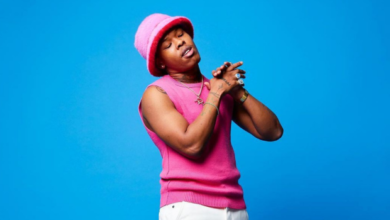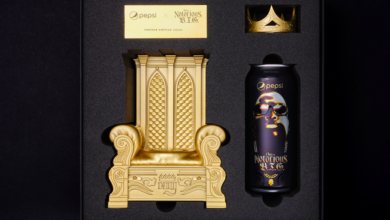HIP HOP BUSINESS ECONOMICS

Capitalism is met with incessant hatred within the Hip-Hop community. This hatred is potentially derived from the poor economic conditions most rappers are born into and from the fallacy that the country’s economic system resembles anything near a free-market. Regardless, to put it lightly, capitalism has developed into a “dirty” concept, both in the Hip-Hop community and beyond. Those who are labeled capitalists, or those who support capitalistic ideas, are labeled as greedy and materialistic people who are focused on an immoral economic system which hurts all but the economic elite. The overwhelming majority of conscious Hip-Hop echoes socialist theory. Rappers give the disguise of rebellion and anarchy when in reality they defend the status-quo they claim to detest.

People are corrupt and therefore the government, made up of more corrupt people, will somehow “fix” this mess. Hip-Hop is undergoing a crisis right now: a corporate-controlled, centrally planned catastrophe that is effectively lowering the quality of music and angering loyal fanbases. The past few years have seen massive record companies aim to control their artists by only allowing them to release music accepted by the executives. When that did not materialize, major record labels got frustrated. Gallo shut down their Hip Hop division which was home for Skwatta Kamp, Pro, ProVerb and Mr. Selwyn, Sheer Music shut down Sheer Hip Hop which had Hidden Force, Zulu Mobb and Blindfold, many rappers got dropped by CCP/EMI. Native Rhythms dropped F Eezy and didn’t renew Zuluboy’s contract but instead replaced him with Zakwe hoping for better results. Outrageous Records had the best strategy of all record labels, Rage had TV shows (most notably Street Journal), magazines and other businesses that sustained Outrageous Records so there was no pressure on artists to do bubblegum rap for sales. It was a huge loss to SA Hip Hop when the company got liquidated. Buttabing Entertainment had to learn the hard way with the financial loss they incurred on My Man, but Slikour is still standing.
Ghetto Ruff also had successful Hip Hop artists, but DJ Sbu, DJ Cleo, Zola and others parted ways with Lance Stehr crying foul play.
The spontaneous order and creative forces which built the Hip-Hop model have been destroyed and replaced by the horrors of central planning and corporate control. The Hip-Hop culture, specifically rap music, is in desperate need of free-market reform.
The creation and expansion of Hip-Hop is the result of free-market tendencies. There was local demand for a new type of music that listeners could dance to and enjoy. Listeners sought new types of beats and entertaining MCs to take their minds off the terrible living conditions. Individuality was traded in for the cookie-cutter rapper image as originality gave way to repetition. Fans constantly hear reports of artists being forced to make certain songs the label wants or mimic sounds that are currently popular. Presently, there is an overwhelming sense of stagnation in rap music. Record labels try to control artists from their clothing to the choruses on their songs. Decentralization of the industry is what is so heavily needed right now.
Corporate record labels serve as government while rappers and fans serve as the subjects. These massive labels operate as central planners that attempt to get around the (musical) fatal conceit, “The curious task of economics is to demonstrate to men how little they really know about what they imagine they can design.” How many stories must we hear about artists being told they were not good enough by record companies only to have their songs and albums flourish when released to the general public?
Every rapper that is big and successful right now, locally or internationally, was once turned down by a record company or by a radio station at some point in their lives.
Although these record companies don’t use force to dictate what their artists should produce, they do use the idea of central planning and coercion to make decisions that should be left to the creative market. Art, the most creatively liberating entity in the world, has been suffocated by the fatal conceit.
That also didn’t work because you cannot run Hip Hop from the office. Now, this is how majors sign rappers in South Africa: Record your own music, shoot a video, get airplay, create a buzz, have a fanbase, then they can negotiate.
That’s how Universal Records signed Pro and ProVerb, and Sony signed iFani. As talented as they are, those record companies wouldn’t give them a chance if they came straight from the streets. A&R’s don’t have the time to scout for raw talent that they can groom anymore. Artists must be well established on their before they can get the record company’s attention. The truth is it’s the survival of the smartest, not the most talented.
Record executives, in this analogy, are our central planners; they lack the knowledge of all actors in the market, the ability to marry the correct beats to lyrics, and produce the magic that is music. This comes from artists, from trial and error, from determination and drive. Hip-Hop rewards courageous entrepreneurs who put their money and reputations on the line. It is calculated risks which bring forth massive returns, whether those returns are expressed in financial profit, respect, or notoriety.
Artists have a natural incentive to create the best possible music while many record companies (not all) have the incentive to produce the most wealth possible, at the expense of quality music. Critics may cite this as the best example of pure capitalism and its promotion of profit as the ultimate goal. This is not a sound argument because profit is a subjective term. Although profit is traditionally money, any benefit one gets out of something is essentially a profit. As stated above, artists consider respect, notoriety, and celebrity when dealing with profit. Artists, like all people, are self-interested and have the incentive to make the exact type of music they feel is right at any given time. The profit of that music may be the love and admiration of fans. The profit of music may be the creation of a sonic sound unheard to the general public or a track about something dear to the artist’s emotions. The profit may be anything desired by the artist, whether it be reputation or money. The artists know what type of profit they wish to acquire and have the incentive to create the type of music most valuable to them. The monopoly effect comes when radio stations only play the music of record executives they are in bed with. This is why “radio friendly” records focus on degrading women, materialism, drugs, and elementary rhymes.
Why are record executives trying to limit those who refuse to abide by normal limits? Artists are special, brilliant people, and the industry is doing its best job to put chains on them and stifle their creative skills and wit. These are wordsmiths, poets, singers, preachers, and teachers. People don’t deserve chains that limit their expression, and musical artists are most at home when they have complete creative control. This is liberty! This is the free market. This is the entrepreneurial spirit. An artist is most prosperous in times of most creative liberty. The artist, performer, and producer’s artistic success is directly proportional to their level of creative freedom they enjoy. Similarly, an economy is most prosperous in times of most economic liberty. A consumer, a producer, and an entrepreneur’s financial success are directly connected to the level of economic freedom they enjoy. Regulation, constriction, and strain on economic freedom injure an economy’s ability to prosper most vibrantly. The music industry behaves similarly. No record executive could determine what songs, which hooks, or what instruments would be best for an artist, song, or album. Markets decide things better than central planners. The artist, or entrepreneur, is motivated by their self-interests. Liberty and creative freedom should remain at the forefront of any decision within music.
Just because artists are given back creative control does not mean all music will be perfect. Failure is needed. If artists do not learn how to fail, they will never learn how to succeed. In the market process, the rap world, and in the classroom, failure can be considered as important, even more important, than success. Economics is all about signals, and failure gives the necessary signals to an artist that what they are doing is not connecting with the audience. By giving artists total control over their music, the artist regains the incentive structure to create quality music. Coercion by record companies restricts options, while incentives increase options. The more options and freedom given to the artist, the more authentic and enjoyable the music will be.
When I was doing research for a Hip Hop documentary “FEDE FOKOL” we wanted to use Prokid’s song of the same title “FedeFokol” then I discovered he doesn’t own the rights to the song, it’s Gallo’s intellectual property. So Pro can’t perform his own songs from his 1st album “Headz N Talez” without Gallo’s permission.
When you sign with a major, you become a slave and “Slaves don’t own their masters”.
In South Africa, Gold is selling 20 000 units. Selling 20 000 CDs at R50 each amounts to R1million, hence “striking gold”. If the artist is contracted for 10%, it means the artist gets only R100 000 (Gold sales) which will also be deducted for tax purposes. Record companies, like any other company, make more money off their employees (artists).
Hip-hop culture has demanded websites for the newest in fashion, music, and art and that demand has been supplied. This is a glorious free market that enables the consumer to “purchase” any type of music through downloading or sharing with friends. Distribution through a corporate entity is no longer needed for some. Many artists have decided to remain “independent” from major labels and instead release music through their own label, where they hold creative control. Physical sales of CDs are dropping and the Internet has been instrumental in giving choice to the Hip-Hop consumer while the record companies and radio stations are trying to tell people what they should be listening to. Remaining independent allows an artist to flourish as they make exactly what their heart desires.
Record companies and radio stations manipulate listeners and produce artificial results. The radio system in promotes illegitimate rap music and an inauthentic reality of Hip-Hop culture. The market has been greatly distorted. Songs with the rhyme scheme of a first grader make up the majority of radio songs. Rap fans who want legitimate rap music find themselves downloading songs from the internet. The radio has distorted the market which throws off signals to young and established rappers alike. Young rappers now see this first grade rhyme structure and substance-less lyrics as the ingredients to a successful rap career. The same can be said when artists decide to follow the direction of a record company that encourages them to portray a false image that is incongruent with who they really are. Rap is now run by inauthenticity.
Hip-Hop must live by the rules of supply and demand just like any other service or goods.
Rap music, at its most natural and untouched form, is the most glorious example of a free market. One of the more fascinating components of the Hip-Hop world is the dress and slang.
Critics will cite the pursuit of capitalistic profit as the driving force behind rap deterioration. They claim Hip-Hop should be for the fun, the lyrics, the music, and not the profit. They argue that somehow a profit scheme will lower the quality level of music. What they don’t realize is rap’s profit incentive is the reason why it is what it is today. Hip-hop was brought to the forefront of music when the early Hip Hop was found to be profitable.
Music needs to become anarchic. Anarchy, contrary to popular belief, does not mean chaos. Anarchy simply means lack of a central authority. This means the industry is organized bottom up, not top down. If charity fails to begin at home, do “Die Antwoord”. The world is too big and once you make it big abroad, everyone will pay attention to you even those who initially rejected you.
Rappers have the innate and incredible ability to tell stories using complex language over robust beats. These artists should not be controlled, their albums should not be centrally planned, and their careers should not be crammed into a one-size fits all policy for rap music. The rap market is heavily distorted and needs an urgent correction. Economics is about signals. Record companies and radio stations have thrown off the incentives, mucked up the signals, and are hurting the consumers. The rappers, too, should be blamed! They continually make status-quo records purporting the same unoriginal claims they say they stand against. The false sense of rapper rebellion leads young listeners nowhere. When rap first appeared on the scene it attacked conventional music, shot back at politicians, called out authority, and told messages of life, passion, culture, and love; but the fact is that early Hip-Hop took off because profit was possible. It represented the best of both worlds: a good paying income and a position of notoriety and respect. Right now, the income stream has trumped individuality, respect, and talent. The market is asking for something else. The demand for rap with substance, or even rap with a more complex rhyme scheme, is large and growing as more fans are becoming sick of radio music. The rap revolution can only come from a powerful connection between the rappers and the fans overthrowing this new rap identity as we decentralize the industry. Freedom must be returned to the artist. Freedom and liberty are hard to maintain: politically, economically, and musically. We must fight for liberty today in order to preserve it for tomorrow.
Initiatives like Ritual Stores, Hype Magazine, Back To The City, Masters of Rhythm, Butan Wear, Party People, to name but a few, are classic examples of how you can make money off Hip Hop without being a rapper.
In South Africa, every second advert on TV has a Hip Hop element and rappers are the most endorsed artists of all genres. That’s how big and influential Hip Hop is.
Health, Wealth, Wisdom
By @rashid_kay on Twitter




